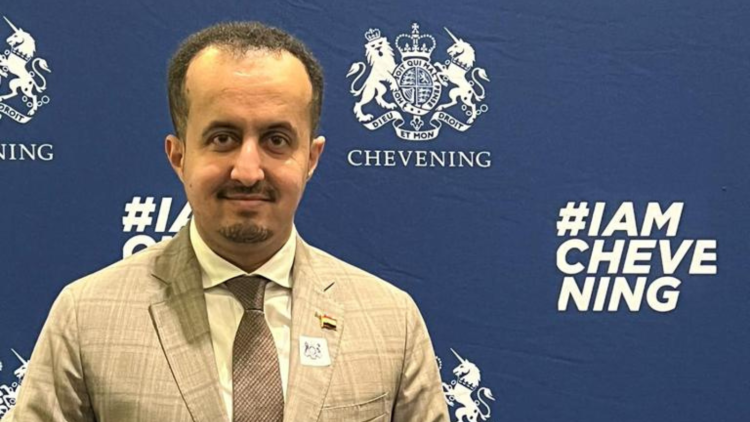BSc Management


Key information
- Start date
- Duration
- 3
- Start of programme
- September
- Attendance mode
- Full Time
- Location
- SOAS on Campus
- Fees
-
Home student fees: £9,250
Overseas student fees: £21,990Please note that fees go up each year.
See undergraduate fees for further details. - Course code
- 4G55
- Entry requirements
-
ABB
Contextual: BBB
Subject required: Applicants without A level Maths (or equivalent) must have a minimum of grade B in GCSE Maths (or grade 6 in the new structure)
-
See undergraduate entry requirements and English language requirements for international and alternative entry requirements.
Course overview
Our BSc Management programme will provide you with a strong grounding in business and management, as well as the skills needed to be an effective manager in a changing world.
You will take modules in principles of management, organisational behaviour, international human resources management, accounting, finance, managerial economics, marketing, business law, corporate governance, business ethics and corporate social responsibility, research methods and international business and financial strategy, together with specialist modules that draw on SOAS’s knowledge of management and finance on China, Japan, Korea and Middle East and North African as well as optional language and cultural modules.
The School of Finance and Management is excited to continue its collaboration with Practera, building on the success of the previous SFM Virtual Industry Project. These bespoke work-based learning projects are designed to grow your professional skills and network through working with a team of SOAS students to tackle a real-world business challenge.
Why study BSc Management at SOAS?
- SOAS is ranked 38th in the UK for Accounting and Finance (Complete University Guide 2023)
- We are ranked 6th in UK for graduate employability (QS World University Rankings 2023)
Structure
Students take 120 credits each year composed of Core, Compulsory and Optional modules.
- Core modules: These are mandatory and must be passed in the year they are taken before the student can progress to the next year
- Compulsory modules: These are mandatory but in the case of a failure, students may carry this into their next year provided that they retake and pass the failed element or exam
- Optional modules: These are designed to help students design their own intellectual journey while maintaining a strong grasp of the fundamentals
Important notice
The information on the website reflects the intended programme structure against the given academic session. The modules are indicative options of the content students can expect and are/have been previously taught as part of these programmes.
However, this information is published a long time in advance of enrolment and module content and availability is subject to change.
Year 1 - Core and Compulsory
Year 1 - Guided options - List A
15 credits from List A
Year 2 - Core and Compulsory
Year 2 - Guided options - List B
Up to 30 credits from List B or Language open option
Year 3 - Core and Compulsory
Year 3 - Guided options - List C
Up to 30 credits from List C, List D or Language open option
Year 3 - Guided options - List D
Up to 30 credits from List C, List D or Language open option
Teaching and learning
The majority of the student’s time will be through their own independent study. Students become more active in class through their reading and essay-writing and should greatly enhance their participation in discussion groups.
Contact hours
In the Department of Finance and Management, most undergraduate modules have a one or two hour lecture and a one hour seminar every week. Lectures and seminars are often taken by different teachers to provide a variety of angles on the subject.
The Independent Study Project (ISP)
These are usually taken by final-year students only, its aim is to provide an opportunity for students to conduct original historical research on their own initiative, to engage in in-depth analysis of particular subjects and to use a range of primary historical sources. It is assessed by a single 10,000-word dissertation (including notes but excluding bibliography).
Learning resources
SOAS Library is one of the world's most important academic libraries for the study of Africa, Asia and the Middle East, attracting scholars from all over the world. The Library houses over 1.2 million volumes, together with significant archival holdings, special collections and a growing network of electronic resources.
Fees and funding
Fees for 2023/24 entrants per academic year
| Programme | Full-time | |
|---|---|---|
| UK students | Overseas students | |
| BA, BSc, LLB | £9,250 | £21,160 |
| BA/BSc Language year abroad | £1,385 | £10,580 |
*Please note that fees go up each year.
Employment
Graduates from the School of Finance and Management leave SOAS with a coherent and solid knowledge of management and finance, with skills in statistics and computing, critical reasoning and analytical thinking.
Recent graduates have been hired by:
- Christian Aid
- Dagong Global
- Deloitte
- Department for Business, Energy and Industrial Strategy
- Elbus Group
- Financial Times
- FM Capital Partners
- HM Treasury
- Houlihan Lokey
- Huaxia Bank, China
- IDB (Islamic Development Bank)
- Investec
- J.P. Morgan Asset Management
- KPMG
- Lloyds Banking Group
- Santander
- UBS
- University of Oxford
- White & Case LLP
- World Food Programme
Find out more at Careers Service.








